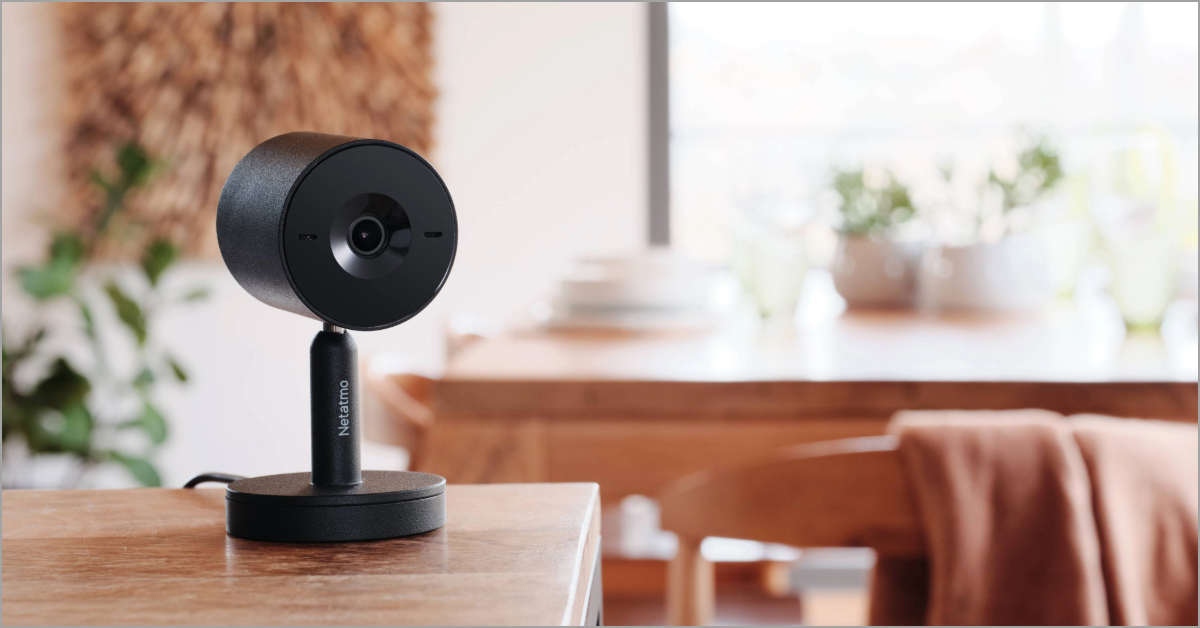
New Indoor Camera Advance
Discover the new Indoor Camera AdvanceCheck it out

There are a couple of reasons why your fire safety devices might be beeping away at you (often, your device will integrate both a smoke detector and a fire alarm in one).
Let’s take a look at them here:
Your detector might have picked up on a real fire that’s started, or it could just be a false alarm because someone’s burned a bit of toast in the kitchen.
False alarms can be frustrating, but it’s hugely important for residents’ safety – and, of course, a legal requirement – that you keep your smoke detectors and fire alarms fully operational.
Remember, smoke detectors are often designed to pick up on other fumes within the home.
These could be toxic (such as carbon monoxide leaking from a faulty boiler or gas appliance) or non-toxic (like steam from the bathroom).
If your smoke detector/fire alarm continues beeping for no reason, it could just be faulty.
Before coming to that conclusion, make sure you’ve tried to fix the device by following the advice below.
Check the batteries – if they’re running low, the beeping might be your smoke detector or fire alarm letting you know that you need to change the batteries
Read the manual that came with the smoke detector or fire alarm to see if there are any obvious installation or function issues
Reset the smoke detector/fire alarm with that old favourite: turning it off and on again
Clean the smoke detector or fire alarm, as a build-up of dirt might be affecting its normal function
If your smoke detector/fire alarm turns out to be faulty, buy a new one as soon as possible
As a UK landlord, you’re legally responsible for installing smoke detectors in your property, according to specific regulations outlined in British Standard 5839-6:2019.
You’re also responsible for checking that the property’s smoke detectors are fully functional at the start of each new tenancy agreement.
After that point, the tenants are responsible for regularly checking the function of the installed smoke detectors and fire alarms (UK government guidelines suggest checking once a month).
Smoke detectors and/or fire alarms should ideally be installed on the ceilings of hallways and landings in the home (all areas that would be used in the event of a fire evacuation).
But, you might choose to optimise fire safety levels in the home by installing detectors/alarms in all living spaces, such as bedrooms and lounges.
Bear in mind that you should keep your home’s detector/alarm equipment fairly easily accessible, to be able to check the batteries regularly.
If you’re also looking to install carbon monoxide detectors, these should be placed at head height and approximately 1 to 3 metres away from the potential source of a carbon monoxide leak.
Did you know that the maximum useful lifespan of a smoke detector is 10 years? After a decade, you’ll need to replace your home’s smoke detectors to make sure that they’re still fully functional and looking out for your fire safety. Tired of checking batteries every month? Try a Netatmo Smart Smoke Detector and never change a battery again! With a 10-year battery life, the Smart Smoke Detector knows how to take care of itself. It periodically auto-checks its own function and sends you reminders to test run its audible alarm component. Plus, you can remotely control it straight from your smart devices. Neat!
Manually pressing the “silence” button on the smoke detector/fire alarm
Most smoke detector and fire alarm models will include a “silence” function.
Press this, and the beeping will stop.
If the smoke detector/fire alarm continues to pick up on smoke after a short period has elapsed, the beeping noise will start again to ensure your safety.
Smart fire safety devices can be remotely controlled from your compatible smart devices.
Connect your smart smoke detectors and fire alarms up to your home’s WiFi network and you’ll be able to control them via an app – easy!
To browse the full range of smart fire safety and home security options, check out the Netatmo online shop.
If your smoke detector or fire alarm is continually beeping because it’s faulty, then you may need to remove the batteries to stop the noise.
Remember, if you remove the batteries from your smoke detector/fire alarm, it’s vitally important that you replace them as soon as you can, or purchase new devices if your original ones were faulty.
If your smoke detector’s triggered your fire alarm because of a small cooking mishap, it’ll stop beeping a little while after the smoke clears.
So, open doors and windows to air out the home.
Make sure you install your smoke detectors far enough away from the bathroom and kitchen, so that they’re not falsely triggered by steam.
For effective fire safety alerts in the kitchen, install a heat detector instead.